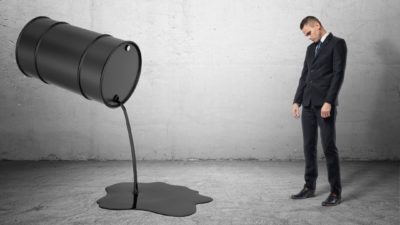November was another positive month for the S&P/ASX 200 Index (ASX: XJO). During the period, the benchmark index rose 6.1% to finish at 7,284.2 points.
Unfortunately, not all shares climbed with the market. Here's why these were the worst performing ASX 200 shares in November:
Elders Ltd (ASX: ELD)
The Elders share price was the worst performer on the ASX 200 last month with a 20.6% decline. Investors were hitting the sell button following the release of the agribusiness company's full year results. For the 12 months ended 30 September, Elders reported an impressive 35% increase in sales revenue to $3,445.3 million and a 42% jump in underlying profit before tax to $223.5 million. However, overshadowing this solid result was management's 2023 outlook, which warned that "extreme rainfall events across the eastern states have created some uncertainty."
Collins Foods Ltd (ASX: CKF)
The Collins Foods share price was out of form and sank 18.6% in November. The majority of this decline came in the final days of the month following the release of the quick service restaurant operator's half year results. Although Collins Foods revealed solid top line growth, inflationary pressures weighed on its profits. Unfortunately, management now doesn't expect these pressures to ease in the second half. In addition, concerns that the Taco Bell brand could be about to fail again in Australia also weighed on sentiment.
Novonix Ltd (ASX: NVX)
The Novonix share price had a tough time in November and tumbled 16.4%. This may have been driven by profit taking after some very strong gains during the previous month following major funding news in the United States. In addition, battery materials shares came under pressure last month due to concerns over demand in China amid soaring COVID cases.
Healius Ltd (ASX: HLS)
The Healius share price wasn't far behind with a 15.2% decline last month. This was driven by the release of a trading update from the healthcare company late in the month. For the first four months of FY 2023, Healius revealed that revenue was down 32% and EBITDA was down 64.1%. This was due to a sharp decline in COVID testing demand.









